EDIT: I've updated the example code and provided complete table and view implementations for reference, but the essential question remains unchanged.
I have a fairly complex view in a database that I am attempting to query. When I attempt to retrieve a set of rows from the view by hard-coding the WHERE clause to specific foreign key values, the view executes very quickly with an optimal execution plan (indexes are used properly, etc.)
SELECT *
FROM dbo.ViewOnBaseTable
WHERE ForeignKeyCol = 20
However, when I attempt to add parameters to the query, all of a sudden my execution plan falls apart. When I run the query below, I'm getting index scans instead of seeks all over the place and the query performance is very poor.
DECLARE @ForeignKeyCol int = 20
SELECT *
FROM dbo.ViewOnBaseTable
WHERE ForeignKeyCol = @ForeignKeyCol
I'm using SQL Server 2008 R2. What gives here? What is it about using parameters that is causing a sub-optimal plan? Any help would be greatly appreciated.
For reference, here are the object definitions for which I'm getting the error.
CREATE TABLE [dbo].[BaseTable]
(
[PrimaryKeyCol] [uniqueidentifier] PRIMARY KEY,
[ForeignKeyCol] [int] NULL,
[DataCol] [binary](1000) NOT NULL
)
CREATE NONCLUSTERED INDEX [IX_BaseTable_ForeignKeyCol] ON [dbo].[BaseTable]
(
[ForeignKeyCol] ASC
)
CREATE VIEW [dbo].[ViewOnBaseTable]
AS
SELECT
PrimaryKeyCol,
ForeignKeyCol,
DENSE_RANK() OVER (PARTITION BY ForeignKeyCol ORDER BY PrimaryKeyCol) AS ForeignKeyRank,
DataCol
FROM
dbo.BaseTable
I am certain that the window function is the problem, but I am filtering my query by a single value that the window function is partitioning by, so I would expect the optimizer to filter first and then run the window function. It does this in the hard-coded example but not the parameterized example. Below are the two query plans. The top plan is good and the bottom plan is bad.






